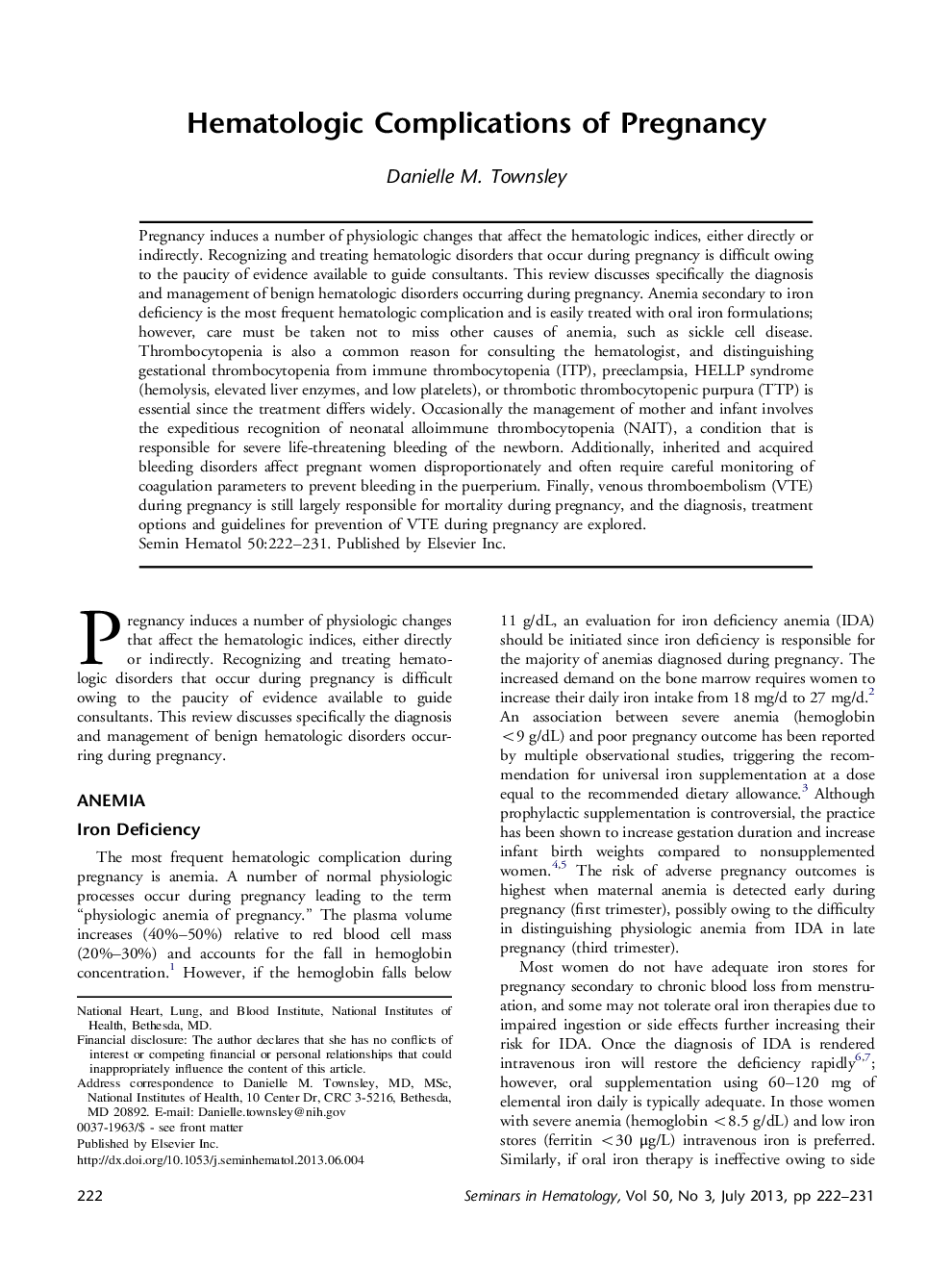| Article ID | Journal | Published Year | Pages | File Type |
|---|---|---|---|---|
| 6113765 | Seminars in Hematology | 2013 | 10 Pages |
Abstract
Pregnancy induces a number of physiologic changes that affect the hematologic indices, either directly or indirectly. Recognizing and treating hematologic disorders that occur during pregnancy is difficult owing to the paucity of evidence available to guide consultants. This review discusses specifically the diagnosis and management of benign hematologic disorders occurring during pregnancy. Anemia secondary to iron deficiency is the most frequent hematologic complication and is easily treated with oral iron formulations; however, care must be taken not to miss other causes of anemia, such as sickle cell disease. Thrombocytopenia is also a common reason for consulting the hematologist, and distinguishing gestational thrombocytopenia from immune thrombocytopenia (ITP), preeclampsia, HELLP syndrome (hemolysis, elevated liver enzymes, and low platelets), or thrombotic thrombocytopenic purpura (TTP) is essential since the treatment differs widely. Occasionally the management of mother and infant involves the expeditious recognition of neonatal alloimmune thrombocytopenia (NAIT), a condition that is responsible for severe life-threatening bleeding of the newborn. Additionally, inherited and acquired bleeding disorders affect pregnant women disproportionately and often require careful monitoring of coagulation parameters to prevent bleeding in the puerperium. Finally, venous thromboembolism (VTE) during pregnancy is still largely responsible for mortality during pregnancy, and the diagnosis, treatment options and guidelines for prevention of VTE during pregnancy are explored.
Related Topics
Health Sciences
Medicine and Dentistry
Hematology
Authors
Danielle M. Townsley,
